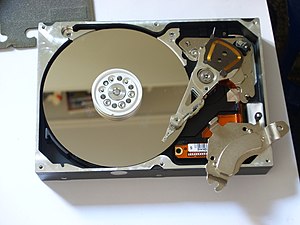
- Image via Wikipedia
If your computer seems to operate slowly compared to when you first purchased it, then you should explore a few common factors that often prevent PCs from working efficiently. Chances are that you will be able to solve the problem on your own and boost your computer’s performance.
Malware is one of the most common reasons for a slow PC. Viruses, worms, spyware, and adware take up CPU space and eat up bandwidth, resulting in a slow computer that stalls frequently and takes forever to perform simple tasks. Luckily, this problem is easy to fix by installing reliable antivirus software. There are lots of free and subscription options available. Read a few reviews to help you decide which one will work best for you.
Your slow computer could also be caused by a cluttered registry. It’s dangerous to delete files from your registry unless you have some experience with computer programming. Instead of trying to clean up the registry on your own, use software that has been designed to identify unnecessary files. This will help you eliminate the clutter without damaging important system files.
It is also possible that your computer has slowed down because it does not have much free memory available. As a general rule, more free memory equals a faster computer. If your computer’s hard drive is full of files and software that you rarely use, then you can solve this problem by deleting them. Be sure to uninstall unwanted software instead of just dragging the icon into the recycle bin. You can also choose to purchase additional RAM or an external hard drive. External hard drives are useful because they allow you to keep files without actually storing them on your computer. You’ll have easy access to them in the future, but they won’t slow down your PC.